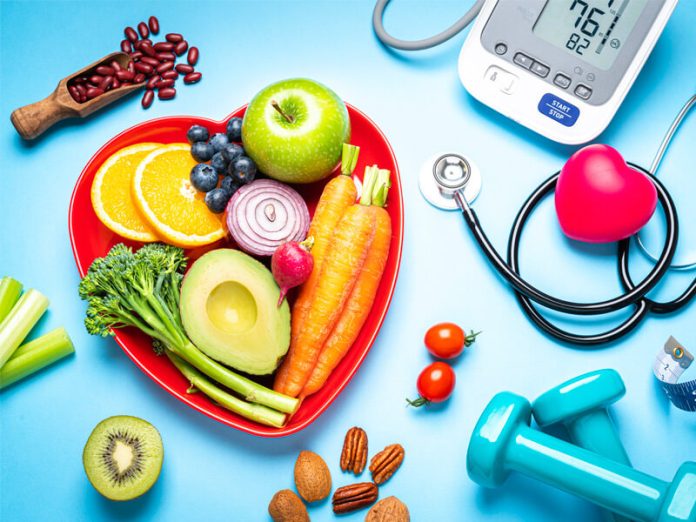High blood pressure can be described as a “silent killer” since there are typically no warning signs of high blood pressure risk factors like genetic and environmental factors. It occurs when the body’s arteries and other blood vessels are too narrow, causing the blood to flow more slowly than usual. If you have this condition, you must be aware of certain foods to avoid with high blood pressure to lower your risk of cardiovascular disease and stroke. The origins of high levels of blood pressure can be traced back to the earliest days of medical technology. Methods that accurately measure blood volume date back to the middle of the twentieth century. By 2025, hypertension is projected to affect over 1.5 billion people worldwide, making it the most prevalent NCD.
Hypertension is a serious disorder that develops after years of neglect and can lead to complications with the blood vessels, nervous system, cardiovascular system, vision, and kidneys. Despite its prevalence, high blood pressure can be managed. Avoiding foods known to raise blood pressure is one method of managing hypertension. In this post, we’ll go over the foods to avoid with high blood pressure and why they are bad for you.
Table of Contents
Knowing the indicators of high blood pressure
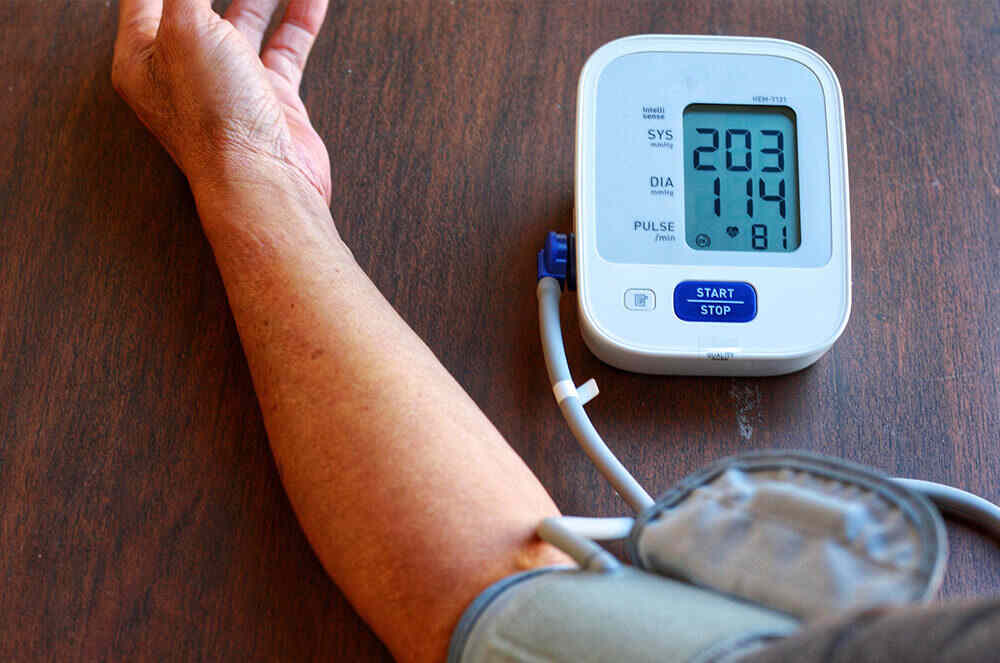
The majority of the time, hypertension is a symptomless illness, particularly in its earlier stages. Nevertheless, even though it is an asymptomatic condition, it is still capable of receiving a diagnosis and assessment if it is measured consistently. Long-term, unchecked hypertension has been linked to a variety of cardiovascular illnesses. It is why it is essential to know about the foods to avoid with high blood pressure. In more severe forms of elevated pressure, referred to as hypertension, indications may involve a flushing sensation, feeling faint, or patches of blood in the cornea, which is referred to as subconjunctival hemorrhage.
It is important to monitor one’s blood pressure measurements to prevent any serious issues from developing. The most important thing is to incorporate a nutritious diet and know the foods to avoid high blood pressure. However, it is also essential to have a solid understanding of the different categories of food that should be avoided when dealing with high blood pressure. By doing so, you will be able to reduce the likelihood of any potential risks associated with this asymptomatic condition.
List of foods to avoid with high blood pressure
Knowing which foods are good for blood flow and which can raise your blood pressure is crucial. One of the most effective methods to maintain good health is to adhere to a diet low in junk food. One of the leading causes of heart issues is high blood pressure. Plant-based diets that promote cardiovascular health may, however, allow us to enjoy longer and more active lives. We’re focusing on the foods to avoid with high blood pressure because it’s among the few key aspects that are possible to consistently examine and manage.
Meat products
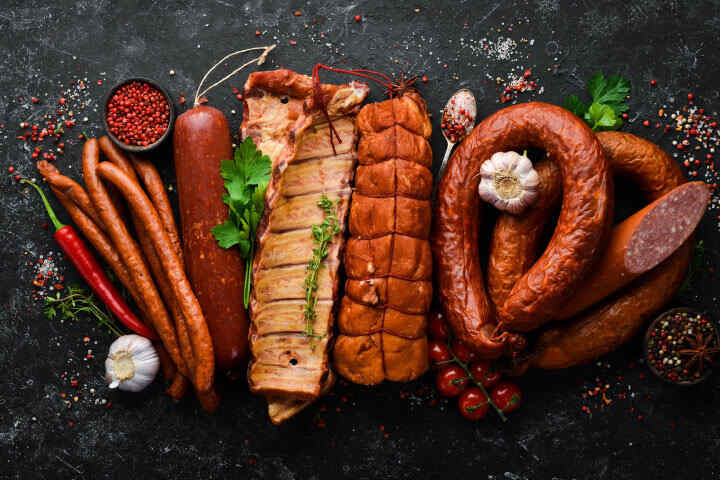
Consuming animal products is associated with significant increases in the risk of developing high blood pressure, as shown by a large body of analysis and research. And it’s not just red meat, either; any form of meat, for that matter, has the potential to drive up your blood pressure. On the other hand, this does not imply that you should completely give up eating meat.
Hence, meat products are one of the foods to avoid with high blood pressure. It is still possible to savor a cut of meat, but doing so in moderation is required. Because eating processed beef can induce a rise in the amount of “unhealthy” cholesterol in one’s system, doing so can put a person at a higher probability of developing BP and cardiovascular disease. Additionally, it has the potential to obstruct the blood arteries, which can lead to a spike in the blood pressure level.
Frozen and canned items
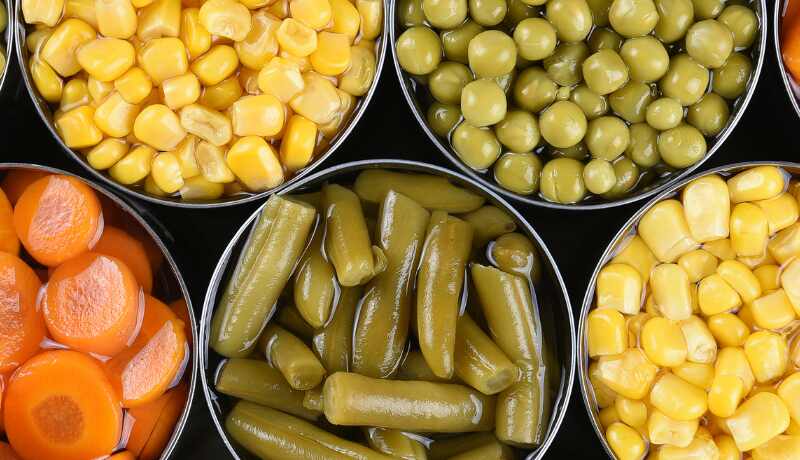
Prepackaged foods tend to focus more on flavor and fillingness than nutrition. Many processed meals typically contain sodium as well as other types of preservatives. It can cause a sharp increase in blood pressure. The high levels of saturated fat, artificial ingredients, sugar, and sugar alcohol should raise red flags. These compounds cause significantly more harm than good and should be avoided. The benefits of enhanced satisfaction and simplicity of use do not justify the dangers of hypertension. It is critical to read labels very carefully.
It’s crucial to check the labels of packaged foods for allergens before going ahead for the purchase. Sodium, caffeine, sugar, toxic chemicals, and animal byproducts are foods to avoid high blood pressure. Try to estrict consumption in large quantities. Even seemingly healthful pre-packaged and chemical-laden food has loads of additives. They also contain excessive levels of sodium, which is quite unhealthy. If you have high blood pressure, you should not consume processed and packed foods.
Sodium
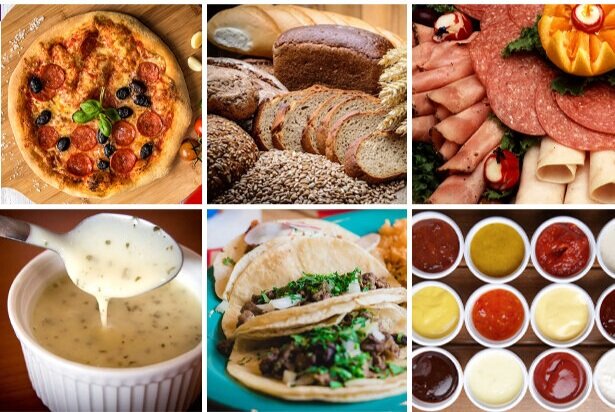
Minaral sodium accounts for approximately forty percent of salt’s total mass. It’s one of the main culprits in a rapid increase in blood pressure. There are now a plethora of synonyms for this mineral. Sodium is available under many various names, including “table salt”, “pink salt”, “fleur de sel”, and “Himalayan pink” salt. Prepackaged foods, especially those marketed as vegan, often contain high levels of sodium. The body retains fluid when there is an excess of salt in the diet, which can lead to hypertension.
The average human being should consume upto five or six grams of salt daily. However, those who struggle with hypertension should cut out salt entirely from their diet. So, stay away from the pizza, curry, hamburgers, etc., that have excessive amount of salt. The recommended intake for children under the age of 12 is much lower. Other foods that are often high in salt include:
- Preservatives
Canned veggies and tomatoes may appear like a harmless pantry staple. On the other hand, a single serving of tomato paste or tomato-based sauce might include anywhere from a hundred to three hundred milligrams of salt. Canned tomato sauces contain a lot of sodium, which is in association with high arterial pressure. Canned maize and string beans also have a high salt content. As a result, cutting back on intake is something to think about.
Options that contain significantly less sodium might appear to be a sensible choice. They typically contain more sodium than they let on. That’s why avoiding them is essential for maintaining healthy blood pressure levels. Instead, we eat frozen vegetables if we want the same health benefits but sacrificing convenience. When vegetables and fruits are cold, it is not necessary to add salt or sugar to them. It is to preserve their nutritional value, as this is something that is sometimes people prefer with canned vegetables.
- Seasonings
Sauce, soy dressing, barbecue sauce, and various relishes are just a few of the condiments that can increase your pressure. That’s because they have excess sugar and sodium content. Sugar consumption lessens the vasodilatory effects of nitric oxide.
- Bread
Bread is a delicious and healthy choice for the morning meal. However, it is one of the negatively affecting foods to avoid with high blood. According to certain reports, an unhealthy amount of salt (70–100 milligrams) is present in one slice of white bread. If you’re trying to reduce your blood pressure, you should probably reduce the amount of bread and bakery items you eat.
- Pickles
Preserved foods are not safe for consumption by individuals who have high blood pressure. So, you need to avoide them. The salt and vinegar levels are high. Similarly, pickles have a lot of spice and salt mixture in them. They may induce dangerously high blood pressure and other medical problems.
Caffeine
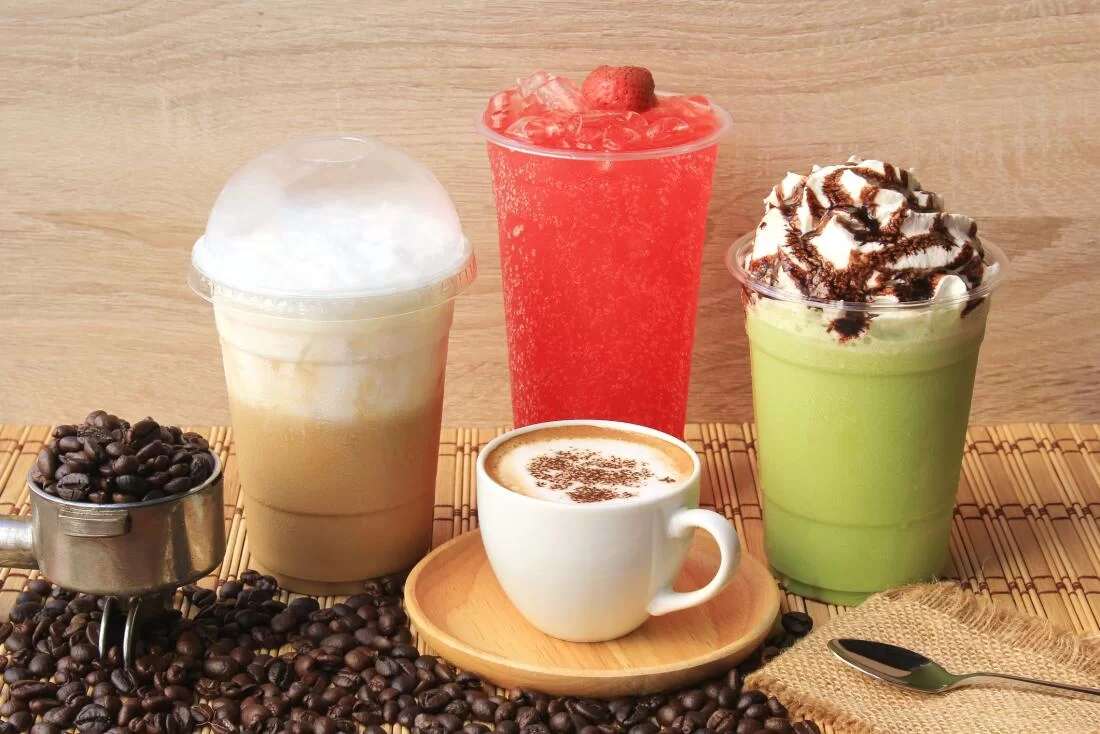
Caffeine-containing foods and beverages, such as soft drinks and chocolate, can rapidly increases in blood pressure. It is advisable that, rather than regular coffee, you drink decaffeinated coffee or herbal tea. You must know how much caffeine is in chocolate and other drinks by checking the labels. Caffeinated products are among the many foods and refreshments that quickly increase cholesterol levels and can induce a dangerous drop in blood pressure. The medical center Mayo Clinic has found that coffee inhibits an angiogenesis-promoting hormone. The research suggests that drinking up to four cups of coffee is likely to raise blood pressure. However, drinking two cups has no noticeable consequences. Some researchers have hypothesized that coffee raises blood pressure by stimulating adrenaline production. Natural ways to increase energy include working out, eating foods high in nitrates, and drinking antioxidant-rich teas.
Alcohol
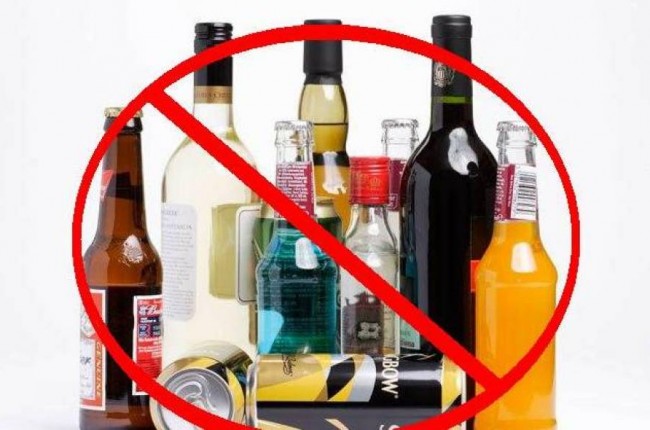
Avoiding alcoholic beverages is also highly advisable since they are a leading cause of hypertension. Beer has the minerals and vitamins you’re looking for. However, it’s not news that chronic heavy drinking can raise blood pressure. Consuming excessive amounts of alcohol tend to increase the risk of hypertension and other lifestyle-related diseases. Blood pressure rises because alcohol stimulates the production of the hormone renin, causing the arteries to constrict.
Renin also reduces how much water the body flushes out in urine. The US College of Endocrinology presented a study showing minimal alcohol intake (between 7 and 13 drinks weekly) raises blood pressure. The repercussions of liquor on hypertension can be severe, especially at higher intake levels (14 or extra drinks per week). Acetaldehyde is a toxic byproduct of alcohol metabolism that increases blood pressure and causes headaches, among other negative health effects. Because of this, it’s possible that drinking causes a rise in arterial pressure the next day.
Alcohol consumption has a connection with several adverse effects, which are well-known within the medical community. Furthermore, alcohol inhibits the effectiveness of hypertension drugs. Additionally, the carbohydrates and calories that are “void” that are present in a variety of alcoholic beverages can contribute to weight gain as well as an increased risk of developing high blood pressure.
Dairy items

Dairy products derived from animals, such as milk, yogurt, cheese, whipped cream, and butter, are detrimental to one’s cardiovascular health. They may also lead to elevated blood pressure. They contain a significant amount of saturated fats, which can reduce the blood flow throughout the circulatory system. Because of the manufacturing process, dairy products can have high quantities of salt. Additionally, they have the potential to create inflammation in one’s body, which can lead to a reduction in circulation and a rise in arterial pressure. Replace all dairy products with their plant-based counterparts, as recommended.
Sugar
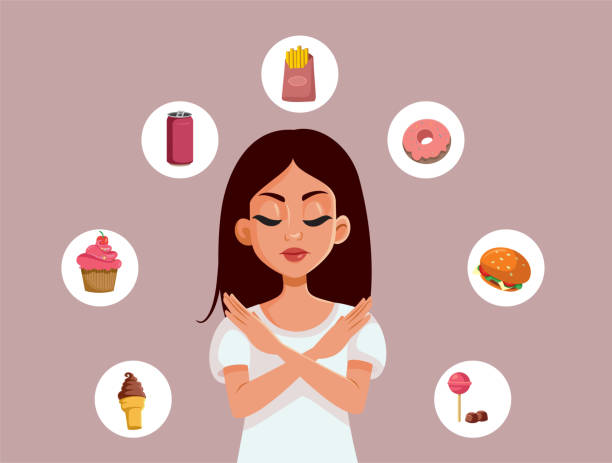
In hypertension, sugar may not immediately come to mind as a meal to avoid. A rise in blood pressure might not follow immediately. On the other hand, consuming an excessive amount of sugar may cause unintentional weight gain. The result could be an increase in blood pressure levels. According to research published in 2014, high sugar intake is much more dangerous for your health than excessive salt. In six different studies, participants who drank sugary drinks had a 12% higher chance of developing hypertension.
Soda and other sugary drinks, including many fruit drinks, tend to increase the risk of acquiring hypertension and can also lead to obesity growth. Be aware that some ready-made beverages, such as brewed beverages, refreshments, and lemonades, may contain additional sugars. On the other hand, we need to make our hydrating drinks at home.
We should try to include sugar-free sweeteners like fruit juice or berries whenever possible. Drinking water infused with freshly sliced cucumbers and oranges is a great way to add flavor without the added sugar that comes with other beverages. Fruit cocktails, juices, and protein bars have added sugar or other sweeteners. They have been in connection to weight gain and an increase in stomach pressure.
There you have it! These are all the seven foods to avoid with high blood pressure.
Final words
If you know what to order and which foods to avoid with high blood pressure when grocery shopping, you can better manage your hypertension. Eventually, the body will benefit from integrating this knowledge with other positive behaviors like frequent exercise and not smoking. Among the best methods for enhancing overall well-being is to avoid highly refined foods such as those listed above in favor of obtaining natural produce and eating these raw or cooking them at home from scratch.
Research suggests that a plant-based diet is more beneficial to health and longevity than a diet high in animal products. By preparing our meals, we can control the contents that go into them, increasing our intake of healthy nutrients like nitric oxide. Lettuce, beetroot, spinach, and cabbage are among the primary ingredients. However, we decided to eat by including beets, kale, and spinach, a terrific approach to jumpstarting our systems and extending our lives.

